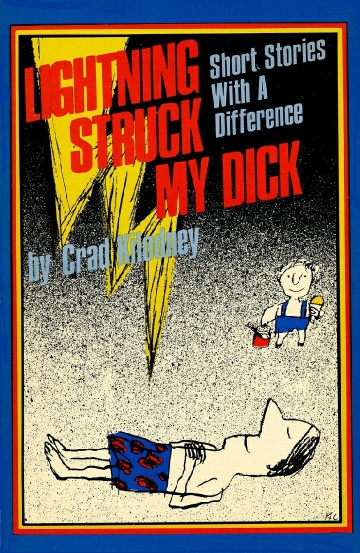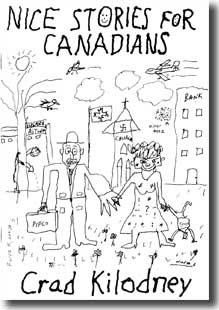Please pardon my momentary resurgence, but a recent newspaper piece must be addressed. After this post, I will disappear once again to a week of purging and packing, leaving this fecund territory to the kind and vibrant guest bloggers.
The most elitist words I’ve read in a newspaper recently were from Richard Schickel. The piece, written by a divorced transplant from Milwaukee who received a mere bachelor’s degree at the University of Wisconsin* (curiously, this “education” is elided from Schickel’s online resume, as well as Schickel’s lengthy article about revisiting Milwaukee), declares criticism to be work “that requires disciplined taste, historical and theoretical knowledge and a fairly deep sense of the author’s (or filmmaker’s or painter’s) entire body of work, among other qualities.”
In fact, this article is something of a cannibalization of Schickel’s more level-headed Harper’s article from January 1970, in which he also evoked Sainte-Beuve:
Ideally, of course a critic is not a performer, not a walking edition of Consumer Reports, not a foppish snob of the sort George Sanders defined for us (with the historical help of George Jean Nathan) in All About Eve. Ideally, and especially if he is functioning in a mass journal, he should be, I think, a well-informed leader of the theoretically endless discussion between artists, commercial interests, and the audience.
Actually, it was Joseph L. Mankiewicz, who wrote and directed All About Eve and put the words in Sanders’ mouth, thus defining this notion of foppish snob. Sanders was merely the actor. And I’m troubled by the idea of a critical viewpoint being interwoven with commercial interests.
But no matter. The question then is whether Schickel, in his reviews, truly has the chops to live up to his own critical definition.
Here is a man who spends half of his review of Lucky You speculating upon how Curtis Hanson’s film perform at the box office. For the “disciplined taste” portion of Schickel’s review, we are told that the film has “a touch of romance, a touch of suspense and a touch of wildness.” I was unaware that good criticism involved emulating a Betty Crocker cookbook.
Here is a man who declares of the late Adrienne Shelly’s film Waitress, “It appears to be a true reflection of her spirit.” Did Schickel personally know Shelly? Or is he buying into what the newspaper articles represented Shelly to be? And if the latter, what bearing does this any of this have on the film in question?
Here is a man who begins his review of Perfect Stranger with this lede: “Halle Berry is, in my opinion, the most beautiful woman in the world.” Schickel has apparently confused writing a review in Time with sliding a Viagra prescription form across a pharmacy counter.
It is clear from these recent samples that Schickel is no Wilson or Orwell, and certainly no Dan Green. That a man with decades of journalistic experience would be writing such trite summations is a testament to his flaccid abilities.
And if these dubious exemplars of “disciplined taste” aren’t enough, here also is a man who wrote a bitchy article in the December 1971 Harper’s about the small audiences that received him as a lecturer. “We could all have met in Uncle Ralph’s living room,” wrote Schickel.
We thus form a clearer picture of Schickel’s motivations, which are not so much about being a critic, but about commenting in a gossipy and digressive matter upon “commercial interests,” the sinuous and sensational qualities of the artists in question, and, above all, the grand desire of being read and received in person by bounteous audiences. This would seem to work against the very “hairy-chested populism” that Schickel is bemoaning.
I do not disagree that criticism, whether appearing in print or online, should be written at the highest level possible and should be as all-encompassing and interconnected as it can under the rather frazzled circumstances. I am now working on a review. Within twelve hours of landing in San Francisco and still suffering from jet lag, I made a trek out to Berkeley to obtain and read a hard-to-find, out-of-print volume to put this author — which falls into the “inflated” reputation and “trash culture” that Schickel refuses to take seriously — into context. I have done this neither to win over audiences, nor because of hubris or the need to be “showy” or “quotable.” I do this because it is my job and I do it as honorably and as honestly as I can, no matter who the author or the media outlet. And if I ever remarked about an author’s physique or third-hand gossip associated with an author within a review, I would hope that readers would roundly pillory me for such wankery.
That latter consequence is what comes from the blogosphere being a democratic medium. It is a beneficial mechanism that acknowledges merit (or lack thereof). Why can’t bloggers (or anyone for that matter) comment upon a book? How then are they to form and develop their own literary opinions and sensibilities? And instead of declaring them parasites, why can’t the critical community learn to assist or encourage them?
Schickel fails to understand that, by way of expanding options in a democratic medium, it remains ever more possible to find “oases of intelligence and delight,” if one looks hard enough. He seems inured to even contributing to these potential oases. He presumes that criticism and the joyful archipelagos of art must remain perennially dictated by a select mainstream elite.
But how does one live life, whether as human or reader, with any personal growth or joie de vivre when one is incapable of overturning a few rocks or occasionally rejecting this imperialism? How can one maintain “disciplined taste” if one is in an ivory tower, perched too high to hear the splendid susurrations of the street?
* — If Schickel is to cast aspersions upon Dan Wickett’s personal background (as opposed to his work), it seems only fair to do the same with Schickel. I do not know what area Schickel’s BA was in (he has, indeed, been less than forthcoming about it), but I have been apprised by the University of Wisconsin — Madison that confirming such a detail can be done through the National Student Clearinghouse, of which I cannot get a human being on the phone to set up an account and thus perform a verification of his degree.






